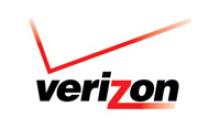Will Alexandria Consider A Municipal Network?
Alexandria, Virginia's City Council is talking about broadband. In a recent DelRay Patch article, Drew Hansen reported that Councilman Justin Wilson recently addressed the Del Ray Citizen's Association to advocate for a plan to improve local connectivity. From the article:
“We’re still dealing with severe budget issues and dropping $300 million on a huge broadband system is not a reality,” he said. “But the first thing we need is a plan.”
According to the article, Alexandria has traveled down this path before with attempts to work with private providers:
In the late 2000s, the city saw a deal with EarthLink to bring free municipal Wi-Fi and competitive service to consumers fall through when the CEO suddenly passed away. Then Verizon made a decision not to build any new FiOS networks as Alexandria was looking for a provider, leaving the city in the lurch.
As is often the case, Verizon is not convinced Alexandria is worth the investment:
“I reached out to Verizon a few months ago and they didn’t even want to meet,” Wilson said. “I think that shows where we are. The city is going to have to be more aggressive. I think we’ve reached the end of big infrastructure build and we’re seeing some new models.”
Wilson raised the possibility of conduit installation in Alexandria in preparation for fiber installation. The community will soon be updating sewers in parts of town.
“We have a responsibility to our residents to create competition,” Wilson said. “If the private sector doesn’t do it, there are some things we can do.”




 But Verizon immediately goes crying to the state regulators: "The landlords aren't playing nice, force them to let us into their buildings!"
Anyone who still believes competitive or free markets are synonymous with unregulated markets is fooling themselves. Big firms use deregulation or regulation in their attempts to corner and monopolize markets.
But Verizon immediately goes crying to the state regulators: "The landlords aren't playing nice, force them to let us into their buildings!"
Anyone who still believes competitive or free markets are synonymous with unregulated markets is fooling themselves. Big firms use deregulation or regulation in their attempts to corner and monopolize markets.